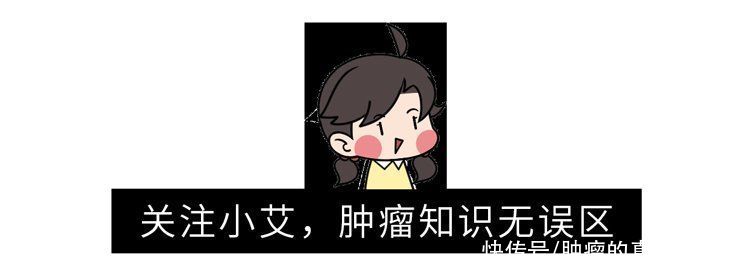內容目錄
Every foreigner who comes to China will find a strange phenomenon at noon. Under the trees, in the park, and even at the workplace, some people lie down or take a nap on their stomachs.
In fact, few people take naps in foreign countries, but in China, naps are regarded as a very important thing. On the e-commerce platform, there is even a A lot of “nap artifact”.
However, China’s favorite “nap” has recently been exposed as a possible health risk that needs to be controlled.

1. New Xiangya Study: Taking naps more than three times a week may increase the risk of high blood pressure and stroke
Recently, Professor Wang E’s team from Xiangya Hospital of Central South University published a study in the international journal “Hypertension”. The study selected UK< /span>A 10-year cohort of 350,000 individuals without a history of hypertension or stroke within the Biobank was followed. Then, combined with Mendelian randomization, the study found that:People who took frequent naps (more than three naps per week) had an increased risk of hypertension and stroke compared with those who did not nap. 12%, 24%.
Researcher Prof. Wang E said, for people who get enough sleep at night who sleep more than 7 hours a night , maintaining a daily nap time of 15-30 minutes can help keep you awake in the afternoon, and can also reduce the risk of cardiovascular disease to a certain extent. However, naps cannot be used as a way to make up for insufficient sleep at night. Ensuring adequate sleep at night is a major prerequisite for maintaining cardiovascular health.
Have you found that all the people who take naps in the study are foreigners, and frequent naps increase health risks? Does this conclusion apply to us Chinese?

Second, foreigners rarely take a nap, is it okay for Chinese people to take a nap?
Professor Sun Lin from Shanghai Jiaotong University and Professor Han Cai from the Fourth People’s Hospital of Wuhu City, Anhui conducted a study, and the results were published in the British Medical Journal. A total of 2214 Chinese elderly people were included in the study. After analysis, it was found that shorter Timed (<30 minutes), frequent (four weekly) naps were associated with a reduced risk of Alzheimer's disease, but longer and more frequent naps were associated with worse cognitive function.
In addition to comparing cognitive function between the nap and no nap groups, the researchers also compared differences in blood lipids, glycerol in the nap group Although the tri-fat was high, it was still at a normal level. At this point, the researchers concluded that proper naps have certain benefits for preventing Alzheimer’s disease, and regular naps can help improve mental agility.

So for Chinese people, taking a proper nap is completely okay, but don’t Sleeping too long, too often. A proper nap has these benefits:
1. Reduce fatigue and restore energy
noon As long as a ten-minute nap can eliminate sleepiness better than sleeping for two hours at night, and a nap can also help enhance memory, turn the fragmented memory in the morning into long-term memory, and free the brain for work and study in the afternoon. Better energy
2. Regulate your mood and relax your mood
Napping can help improve your mood , people’s tension is reduced, it has a good effect of relieving stress, and after waking up, you will feel a lot more comfortable.
3. Improve body immunity
In the process of sleeping, people can stimulate To the lymphocytes in the body, in order to play a role in improving the activity of immune cells, people’s immunity improves.
Since there are so many benefits of naps, why do foreigners rarely take naps? Only the Chinese have discovered this “secret”?

3. Why do foreigners rarely take naps, but Chinese people often take naps?
1. Dietary Differences
Chinese people’s diets contain more carbohydrates. It is converted into glucose in the body, which makes people feel drowsy. In foreign eating habits, coffee is a very important part. Many people drink a cup of coffee in the morning and noon. Coffee can play a refreshing role, so naturally few people choose to take a nap.
2. Learning Differences
Most foreign schools are the last day of the day The class will not exceed 3:00 pm. Students have enough time after school to ensure sufficient sleep at night. Naturally, they will not deliberately take a nap at noon.
3. Differences in work culture
Most foreigners are uncomfortable with sleeping at work feel very awkward, they feel sleeping is a very private, personalthings that are not suitable for exposure in public places.
Whether or not to take a nap is actually a matter of personal choice. You should pay attention to avoiding these three things when taking a nap, otherwise it may bring some adverse effects on your health.

Fourth, don’t sleep like this for a nap, don’t let health care become harmful
1. It is not advisable to sleep immediately after lunch
Most of the blood in the body flows to the stomach after a meal to help digestion, and the blood pressure at this time , The oxygen supply to the brain and the nutrition are in a state of obvious decline. If you fall asleep directly, it will easily lead to insufficient blood supply to the brain, and may also induce reflux esophagitis. It is recommended to exercise for 10 minutes after lunch, and then rest for about 20 minutes before falling asleep.
2. Don’t exceed half an hour
It is best to keep the nap time at 20~ 30 minutes is appropriate. Rest during this time period can help relieve fatigue and improve memory. Once more than 30 minutes, people are likely to gradually enterdeep sleep, and then wake up feeling uncomfortable and sleepy. On the contrary, it is not conducive to work and study in the afternoon.
3. Try not to sleep on your stomach
Try not to sleep on your stomach when taking a nap, Because sleeping on the stomach not only can not achieve a good nap effect, but also may lead to some occupational diseases.

Maintaining a proper nap can bring certain benefits to our health, but certain It is necessary to pay attention to taking a nap to sleep “right”, the wrong way of taking a nap will have the opposite effect. #Number Weekly# #HealthTrue Knowledge Plan#
References:
[1]Association of nap frequency with hypertension or ischemic stroke supported by prospective cohort data and Mendelian randomization in predominantly middle-aged European subjects.Hypertension.2022.07.25
[2]Cai H, Su N, Li W, et al 2021, Relationship between afternoon napping and cognitive function in the ageing Chinese population, General Psychiatry , 34:e100361. doi: 10.1136/gpsych-2020-100361.
[3] “Nap is important, 4 benefits, 4 don’t, like and collect——” .The First Hospital of Hebei Medical University. 2022-07-07
[4] “Nap is a “technical activity”, how can a nap be scientific? ”. Xinhuanet.2015-06-11
Reprinting is prohibited without the author’s permission